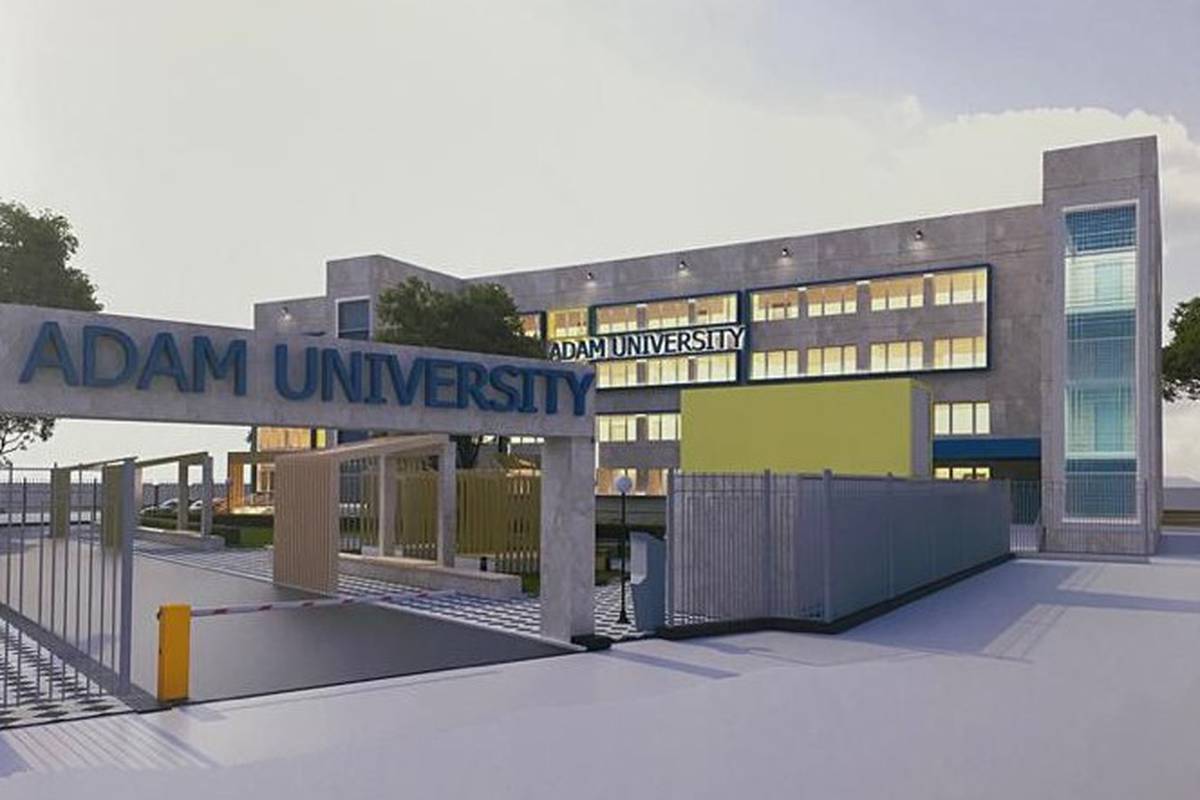
☝️ At a glance
- Recognition & licensing issues: Many Georgian medical degrees face recognition problems in India and abroad, making exams like NExT mandatory but difficult for Indian students.
- Limited clinical exposure: International students often receive inadequate practical training due to language barriers and limited hospital interaction.
- Variable education quality: Most students study in private institutions with inconsistent teaching standards and very few public universities offering reliable education.
- Hidden costs & cultural challenges: Despite affordable tuition in INR (₹29–₹41 lakhs total), students face cultural adjustment, language issues, and hidden expenses post-admission.
In recent years, Georgia has emerged as a popular destination for Indian and international students aspiring to pursue a career in medicine. Georgian medical universities such as Tbilisi State Medical University and David Tvildiani Medical University have attracted thousands of students due to their affordable tuition fees, English-medium programs, and European-standard medical education. While the country offers numerous advantages, it is equally important for prospective students to be aware of the disadvantages of studying MBBS in Georgia.
Understanding the limitations is crucial to making an informed decision about medical studies abroad. Despite modern facilities and accessible admission processes, challenges exist in areas such as recognition, clinical exposure, and cultural adaptation. This article aims to provide a detailed analysis of the major disadvantages that come with studying MBBS in Georgia, especially for Indian students and international medical aspirants.

Become a global doctor with MBBS abroad!
Studying abroad can be affordable and stress-free with futureMBBS:
- World-recognized universities with English-taught programs
- On-site support in partner university cities
- Guaranteed placements & internships for hands-on experience
From selecting universities and supporting you with the application process to orientation and finding accommodation – we are at your side.
Major disadvantages of studying medical in Georgia
1. Recognition issues and licensing exams
One of the most significant concerns for MBBS students in Georgia is the recognition of Georgian medical degrees. Although some universities are listed in the World Directory of Medical Schools, many are not recognized by the Medical Council of India (now National Medical Commission - NMC). This creates complications for students returning to India to practice medicine.
Furthermore, students must clear licensing exams such as NExT (National Test Exam) in India or USMLE (United States Medical Licensing Examination) in the US. Historically, the NExT pass percentage for Georgian graduates has been low, raising questions about the preparedness and quality of MBBS education in some Georgian institutions.
2. Limited clinical exposure and practical training
Quality clinical practice is essential in shaping a competent doctor. While Georgia offers medical programs with clinical training, the actual exposure in hospitals may be limited. In many government universities and private institutions, MBBS students—especially foreign students—report fewer hands-on experiences compared to what is offered in Indian private medical colleges or western countries.
Local graduates are often given priority for internships and live patient interactions, which hinders international students’ clinical experience and practical skills development.
futureMBBS offers full support to make your dream of studying medicine abroad a reality.
Study medicine abroad with 100% support!
3. Language barrier and communication issues
Although MBBS in Georgia is offered in English, the primary spoken language is Georgian. During clinical rotations or hospital visits, students often face a language barrier when interacting with patients or local doctors. This challenge can significantly affect the learning curve of international medical students, as communication is key in medical training.
Without adequate Georgian language proficiency, students may find it difficult to fully benefit from clinical practice, ultimately impacting their confidence and competence.
4. Lack of global recognition in some cases
While Georgia is a part of the European region, not all Georgian medical universities enjoy equal recognition across western countries or the European Union. Degrees from lesser-known or newer private institutions may not be accepted by licensing bodies in many western countries without further evaluations.
This can limit the ability to practice medicine internationally or transfer credits to universities in countries with stricter accreditation requirements.
5. Very few public universities
Georgia has numerous medical colleges, but very few public universities like Tbilisi State Medical University offer government-level recognition and infrastructure. Most students end up enrolling in private institutions, which vary in quality.
Government universities usually have better resources, teaching faculty, and international partnerships. However, due to high competition and limited seats, many international students are left with the option of private colleges with questionable standards.
6. Cultural adjustment and food concerns
Adjusting to the local culture and lifestyle in Georgia can be challenging for many Indian students. The weather, food habits, social environment, and even classroom teaching styles may differ greatly from what students are used to in India or other Asian countries.
Indian food is not readily available everywhere, and students may struggle with adapting to the Georgian cuisine. This adjustment phase can be emotionally taxing and affect academic focus.
7. High dropout rates and poor academic monitoring
The open admission process, which allows many students with low NEET scores to join MBBS programs in Georgia, may lead to poor academic performance and higher dropout rates. Some universities lack strict academic monitoring and guidance, making it difficult for students to stay motivated and academically disciplined.
A poorly structured MBBS course, combined with minimal mentorship, can lead to students dropping out or failing licensing exams later.
MBBS course structure in Georgia
The MBBS course in Georgia typically spans 6 years, including a 1-year internship. The first two years focus on basic science subjects like Anatomy, Physiology, and Biochemistry. The next three years delve into clinical subjects and rotations such as Internal Medicine, Surgery, Pediatrics, and Gynecology.
While many Georgian medical universities claim to follow a European curriculum, the depth and delivery of clinical subjects often lack consistency, especially in private institutions. Students must conduct thorough research on each university’s teaching methodology and clinical exposure before enrolling.
Eligibility criteria
To pursue MBBS in Georgia, the eligibility criteria generally include:
A minimum of 50% marks in 10+2 with science subjects (Physics, Chemistry, Biology).
A qualifying NEET score (mandatory for Indian students).
English proficiency (some universities may conduct interviews or ask for IELTS/TOEFL scores).
Despite the relatively simple admission process, the eligibility does not guarantee academic success. Many students admitted with basic qualifications find it difficult to cope with the rigors of medical education in a foreign country.
Fee structure overview
One of the primary reasons students consider studying MBBS in Georgia is the relatively affordable tuition fees compared to Indian private medical colleges and medical universities in western countries.
Here’s a breakdown of the typical MBBS fee structure in Georgia:
Tuition fees:
Most Georgian medical universities charge between USD 4,000 to 7,000 per year, depending on the institution, this translates to ₹3.3 lakhs to ₹5.8 lakhs per year.Hostel and living expenses:
Monthly living costs, including hostel accommodation, food, transport, and other essentials, range from USD 300 to 500/month (₹25,000 to ₹42,000).
Annually, this adds up to ₹3 lakhs to ₹5 lakhs.Total cost for entire MBBS course (6 Years):
Including tuition, hostel, and basic living expenses:Minimum: Around USD 35,000 (approx. ₹29 lakhs)
Maximum: Up to USD 50,000 (approx. ₹41.5 lakh
Note: There are some other costs as well like costs like visa renewal, health insurance, travel to India, exam coaching for NExT, and costs for licensing exams (NExT, USMLE, etc.).
Top medical colleges in Georgia
While many medical colleges exist in Georgia, only a few maintain consistent academic and clinical standards. Some top institutions include:
Tbilisi State Medical University – A reputed government university with a long history.
David Tvildiani Medical University – Known for its focus on research and international education.
European Teaching University – A private university offering MBBS in English.
New Vision University (Vision University) – Popular among Indian students but faces mixed reviews regarding clinical training.
Students must investigate the credentials, hospital tie-ups, and alumni success of these institutions before choosing.
Exploring MBBS Opportunities in Europe and beyond
While studying MBBS in Georgia has its perks, prospective students should also consider options in other countries such as:
Czech Republic – Known for affordable tuition.
Latvia – Offers US-based curriculum.
Germany – Offers tuition-free education in some states but demands fluency in German.
Poland, Hungary, and Romania – Provide EU-standard education with moderate tuition fees.
Other Western Countries – Offer excellent clinical exposure and global recognition.
Making a decision to study medicine abroad should involve a careful analysis of tuition costs, curriculum quality, clinical exposure, recognition, and long-term career goals.
Conclusion
Studying MBBS in Georgia may seem like a golden opportunity, but it comes with several disadvantages that students must be aware of. From recognition issues and licensing challenges to limited clinical exposure and cultural adjustments, the journey is far from easy.
Georgian medical universities provide accessible medical education at affordable tuition fees, but the quality varies drastically across institutions. A decision to study MBBS abroad should be guided by thorough research, realistic expectations, and long-term planning.
Prospective students are advised to consult alumni, seek guidance from the Indian embassy, and evaluate licensing exam requirements before finalizing their choice. For many Indian students, a better option might be to aim for top Indian private medical colleges or explore other countries with better-recognized medical programs.
Book a free consultation
If you’re considering studying MBBS abroad, professional MBBS abroad consultants can help you ensure you’re fully prepared. Book a free consultation with futureMBBS experts to receive personalized advice on eligibility requirements, exam preparation, visa procedures, financial planning, and more. We aim to help students make informed decisions, setting them on a clear path toward their medical career.
Thinking of pursuing MBBS abroad? Don’t just dream it, do it!Your medical career abroad starts here!
FREQUENTLY ASKED QUESTIONS
FAQs
1. Is MBBS in Georgia valid in India?
Only if the university is recognized by the NMC and the student clears the NExT licensing exam.
2. Do Georgian medical universities offer good clinical exposure?
Clinical training may be limited, especially for foreign students. Some top universities are better than others.
3. How is the food and lifestyle for Indian students in Georgia?
Cultural adjustment can be tough. Indian food is not widely available, and the weather can be harsh in winters.
4. Is it better to study MBBS in Georgia or in Indian private colleges?
Indian private medical colleges may offer better clinical training and preparation for Indian licensing exams
5. What is the average cost of studying MBBS in Georgia?
Georgia MBBS fees range from ₹3.3 lakhs to ₹5.8 lakhs per year, with total costs over 6 years reaching up to ₹37.4 lakhs (approx. USD 45,000), including tuition, accommodation, and living expenses.




